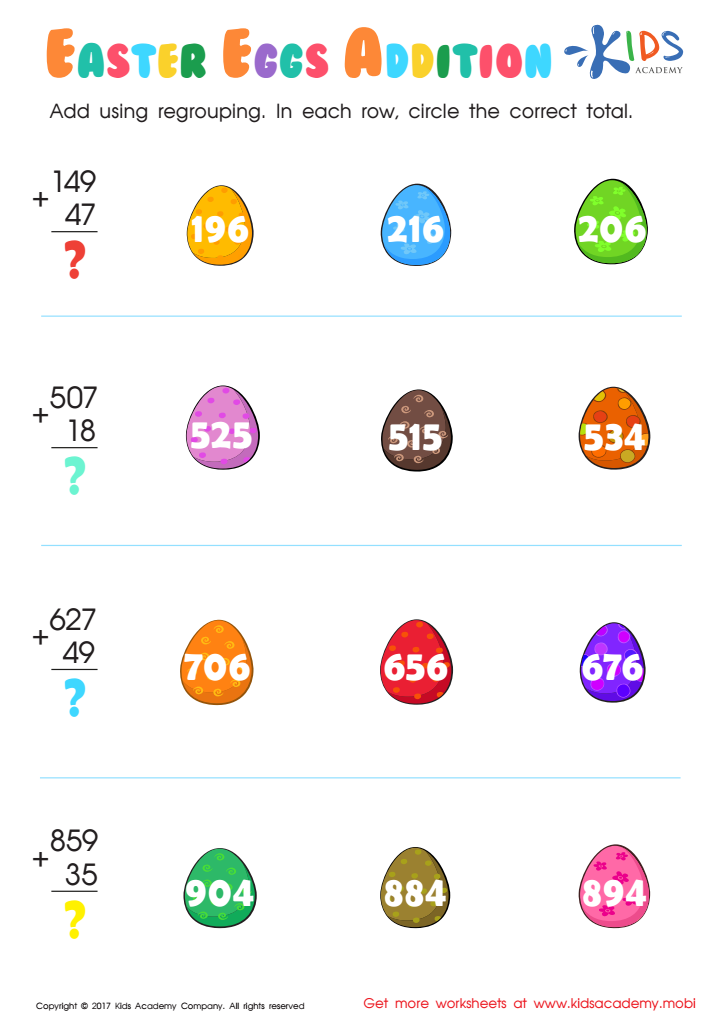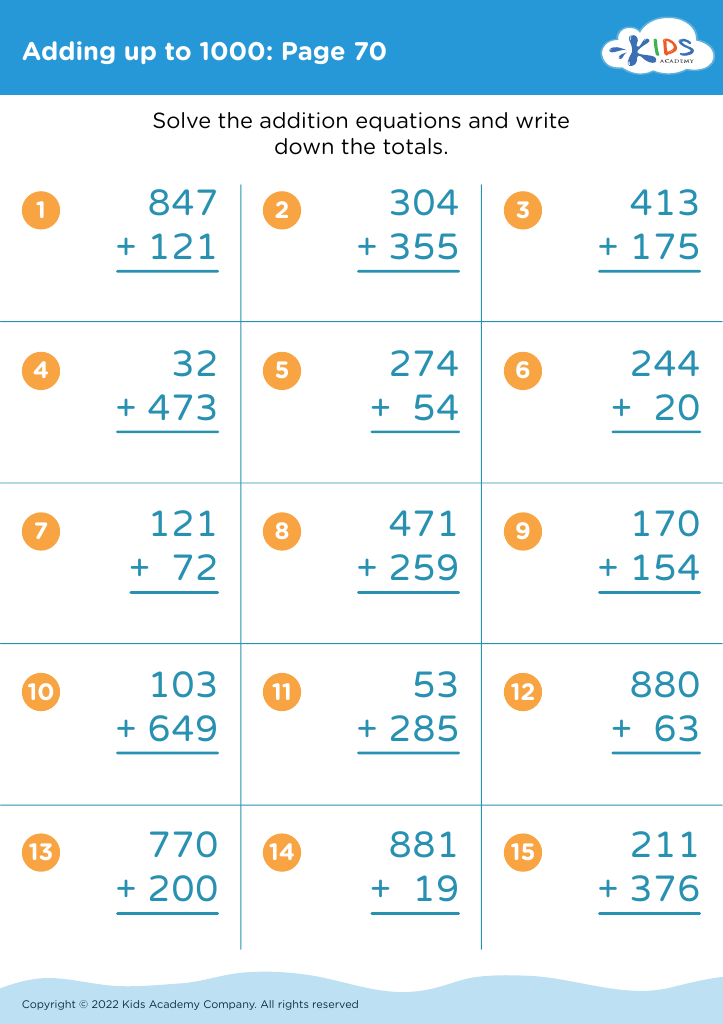Problem-solving practice Math Worksheets for 9-Year-Olds
4 filtered results
-
From - To
Enhance your 9-year-old's critical thinking and math skills with our Problem-Solving Practice Math Worksheets! Designed to challenge young minds, these worksheets provide engaging, age-appropriate problems that encourage students to apply their math knowledge in real-life scenarios. From basic operations to word problems, each activity promotes logical reasoning and fosters a love for learning. Plus, our printable format makes it easy to incorporate fun at home or in the classroom. Help your child develop essential skills and boost their confidence in math with our expertly crafted resources. Start solving today for a brighter mathematical future!


Addition with Regrouping Worksheet
Problem-solving practice in math for 9-year-olds is crucial for several reasons. At this age, children are transitioning from basic arithmetic to more complex mathematical concepts. Engaging in problem-solving helps them develop critical thinking skills, reasoning, and creativity. These skills are essential not only in math but across all subjects and in everyday life.
Furthermore, problem-solving tasks encourage students to understand the process of mathematical thinking rather than just memorizing rules. This deeper comprehension fosters a growth mindset, where children learn to view challenges as opportunities to learn. When parents or teachers prioritize problem-solving, they help children build resilience, learn from their mistakes, and persist in the face of difficulties.
Additionally, engaging kids in math-related discussions fosters communication skills and helps them articulate their thought processes. This interaction can enhance their collaboration and listening skills, which are important in both academic and social settings. Encouraging regular problem-solving practice can significantly boost a child's confidence in their mathematical abilities, which can have a lasting impact on their attitudes toward learning and education overall. Therefore, investing time in problem-solving is a meaningful way for parents and teachers to support a child's academic journey.


 Assign to My Students
Assign to My Students




















